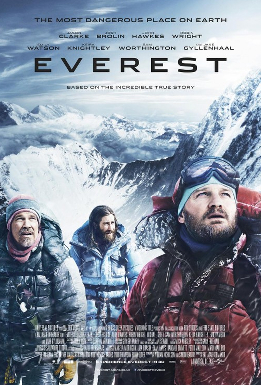Until the early "˜90s, Nepal's Mount Everest was climbed only by the bravest and most experienced mountaineers in the world. But after a successful trip, it became a huge tourist attraction for the wealthy and adventurous. Everest, based on Jon Krakauer's page-turner Into Thin Air, follows the tragic 1996 expedition, which left eight dead.
Unfortunately, Everest often follows the boilerplate biopic template, simply introducing us to characters "“ and there are quite a lot "“ and moving the story quickly to hit the highlights while failing to make us care about most of these characters. It's not until the film's final act, the triumphant ascent and deadly descent up the summit, that there's much excitement to be found.
This is through no fault of the terrific cast, which also includes Keira Knightley, Robin Wright and Sam Worthington. Jason Clarke is solid as climb leader Rob Hall, who butts heads with his competition, the more risk-taking Scott Fischer (Jake Gyllenhaal). While both respect the mountain, they both make critical judgment errors in an effort to please their clients who want to push their bodies further than they will allow.
Where Everest fails to engage is in the writing, which is perfunctory at best. Characters are constantly reminded that this climb will be tough but worth it, occasionally dropping in climber lingo (e.g. shortening oxygen to "O"). And director Balthasar Kormákur (2 Guns) has consistently proven that he has no distinct style to speak of. His movies are as generic as can be.
Still, it's hard not to stare, mouth agape, at the highest point on Earth. The cinematography is often breathtaking, and the sound editing is among the best and most bombastic of the year. That makes up for the lack of quality dialogue or the occasional lapses in special effects. (You can definitely tell when they're shooting on a green screen and not on an actual mountain.)
Everest may have great views and great company, but it doesn't have much to say.

